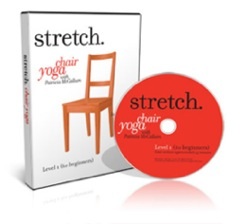|
Lack of Sleep RemediesLack of sleep accelerates the aging process and yet, ironically, many of us find a good night’s sleep more difficult to achieve as we get older. The quality of sleep is important. The better we sleep, the better we feel. After one bad night, let alone a week of them, you probably ache all over and feel irritable, clumsy and miserable.

picture © Victoria Govorushenko and dreamstime.com
Your body needs sleep and depriving yourself of it will undermine your immune system. That means its defences against infection are lowered. Lack of sleep will also slow down rejuvenation processes in your brain. That is because free radicals, which build up in the brain, are removed while we sleep. Perhaps more importantly, the production of natural HGH (human growth hormone, also called the anti-aging hormone) relies on getting a good night’s rest. HGH is a protein-like substance, produced by the pituitary gland in the base of the brain. It plays a crucial role in many of the body’s metabolic processes – too little in childhood leads to stunted growth, and too little in an adult results in excess body fat, lack of lean muscle tissue, brittle bones and thin, wrinkle-prone skin.
It’s true that individuals do vary in the amount of sleep they need. However, we are told by experts that around eight hours a night is ideal. If you’re not quite making the whole eight hours, then try and extend your sleep to achieve this and give your body its best chance to restore and repair itself. If you find you’re losing sleep during the week, then try to catch up at the week-end. After all, lack of sleep of just one hour per night adds up to losing a full night’s sleep every week! Just Click the link to our FREE EGUIDE for "47 Tips for Improved Sleeping" it's a great read!How can we get a better night’s sleep?Sleep complaints seem to increase significantly with age. This can be due to hormone levels such as diminishing oestrogen levels (resulting in night sweats during menopause), as well as mid-life uncertainties keeping us awake: problems with younger or older generations in the family, stress about finance or work worries. If drifting off to the land of nod has become difficult for you, and counting sheep doesn’t work, then try some or all of the following to combat your lack of sleep:
As a last resort for lack of sleep (and instead of popping conventional sleeping pills) think about taking a melatonin tablet when you go to bed – but check with your doctor beforehand. I first discovered these as an aid for jet lag. Then I met somebody who had taken one almost every night of her elderly life to help her sleep better.
A more serious sleeping problem may necessitate a visit to a sleep center for acupuncture, hypnotherapy or cognitive behaviour therapy. Just Click the link to our FREE EGUIDE for "47 Tips for Improved Sleeping" it's a great read!
|









